If you’ve ever had a dog, you’ve probably been through the unfortunate experience of a Dog Chewing item(s) in your home. Dogs chew for the same reasons that a two-year-old does. It’s a way for them to self-soothe and deal with their environment. It’s also a way for them to self-stimulate and release pent-up energy. This blog looks at why dog chewing, what your dog may be communicating, and some easy ways to help curb your dog’s chewed-up habits.
Why Is My Dog Chewing Everything
Dog Chewing is a natural and necessary behavior for dogs of all ages. Pet dogs spend a lot of time chewing bones which keeps their teeth clean and strong. Chewing also provides stimulation and can relieve anxiety. While chewing is normal, it’s the dog chewing of inappropriate items that is a concern.
The solution to this problem lies in investigating the reason that triggers this behavior. And being a dog owner throughout the growing stages of your dog, you will encounter these issues at least once. The terrific part is that they can be resolved only if you figure out why they are doing it.
To prevent this, puppies or dogs should have a variety of attractive, appropriate chew toys available to them. Dogs need to know what they can chew. And there is nothing a little training cannot accomplish.
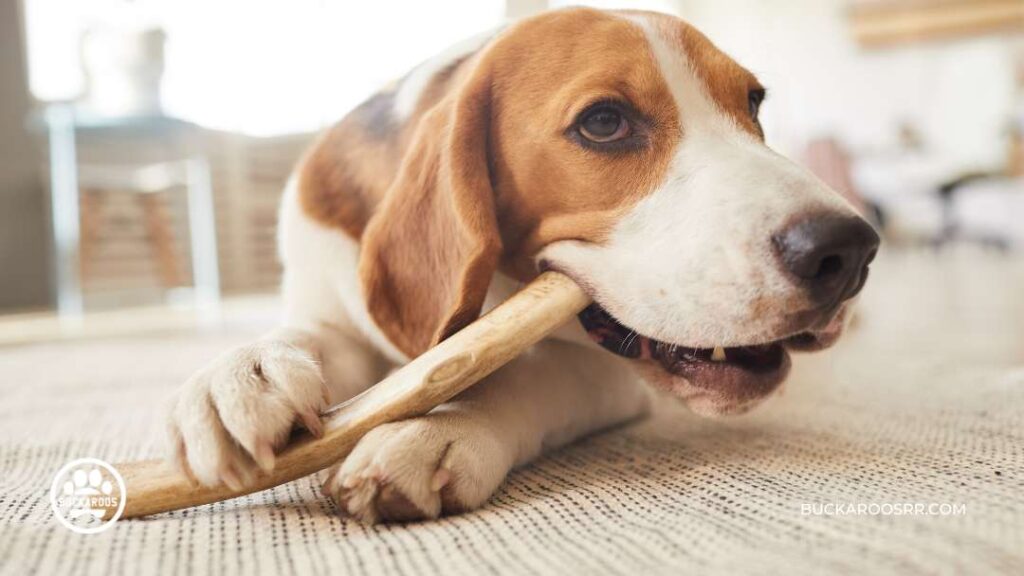
Dogs Quickly Get Bored.
If you’re busy with work, it might be taking a toll on your dog. No one to play with or give them company can easily lead to boredom which is a genuine trigger to chewing. Dogs can start chewing on irrelevant items.
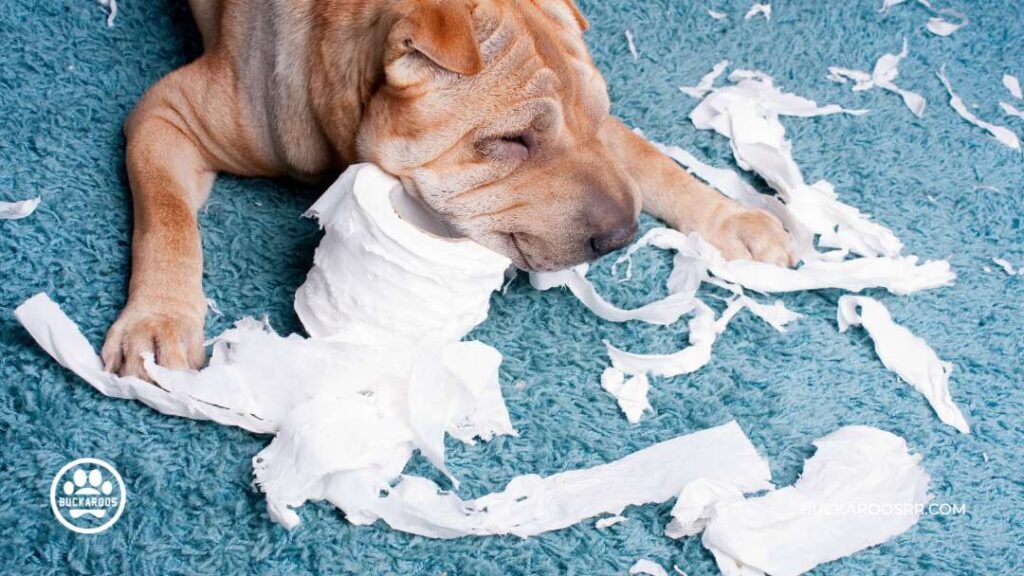
Teething Stage Of Puppies
Puppies chew for two reasons: to explore their environment and to soothe the discomfort of teething. Like human babies, puppies experience pain as they lose their milk teeth and start growing their adult teeth. This phase of intense chewing usually ends around six months of age. But until then, they will put everything in their mouths for comfort.
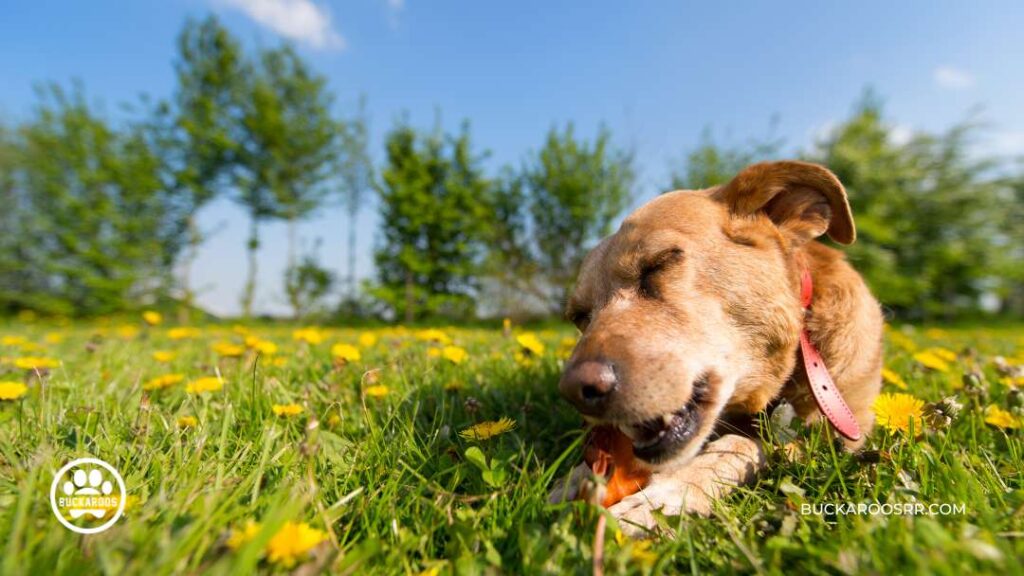
Anxiety can lead to your dog chewing up stuff
Chewing is typical for dogs who experience anxiety, as chewing helps calm them down. If your dog has been displaying anxious behaviors, it may be due to a trigger or separation anxiety. Dogs who chew as a way to relieve the stress of separation anxiety typically only chew when left alone or do it more intensely. Other signs of separation anxiety in dogs include restlessness and unusual behavior.
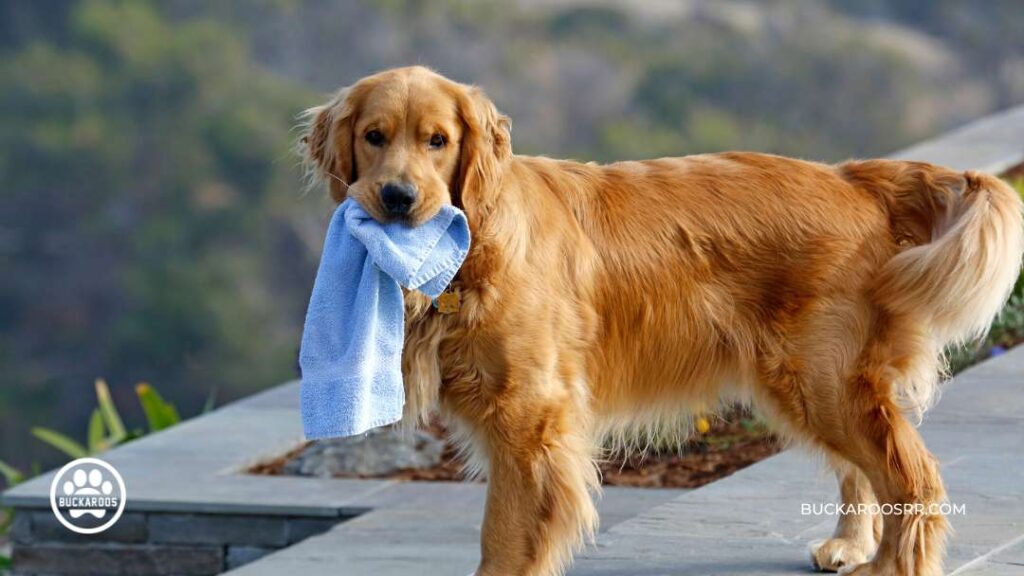
Chewing And Sucking Fabric – Fabric Sucking
Some dogs develop a habit of licking, sucking, and chewing on fabrics. Vets believe this behavior may be linked to early weening off of the puppies. Suppose your dog attempts to engage in fabric-sucking conduct for long periods. If it’s difficult to distract him, then, in that case, the behavior may have become addictive.
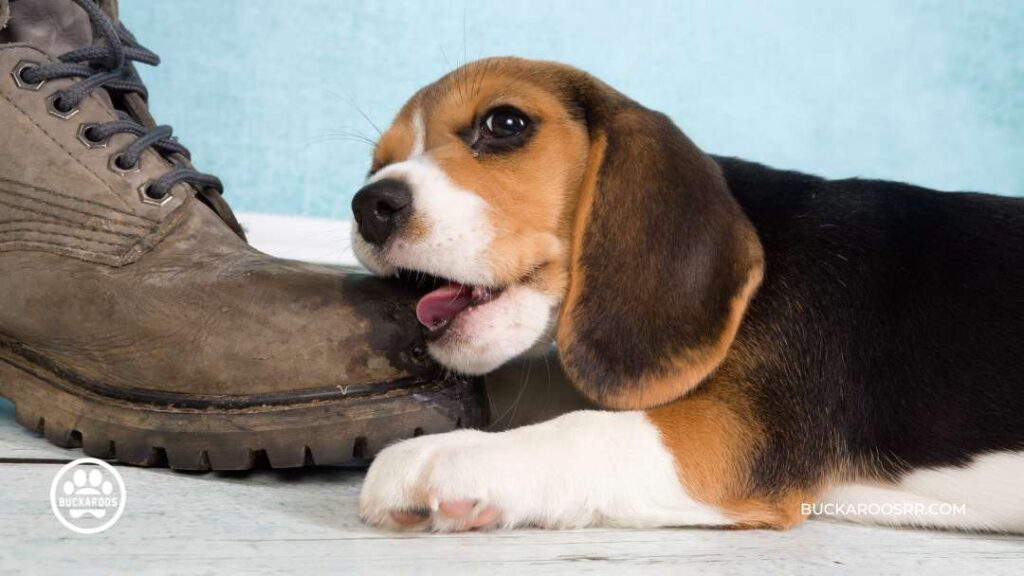
Your Dog May Be Hungry.
If a dog is hungry, it may try to relieve the hunger by gnawing on things. A dog on a strict diet might start chewing and destroying objects to find additional sources of fulfillment. Dogs usually direct this chewing behavior toward objects that look or smell like food to them.
This can be dangerous, though, if the dog ingests any non-edible items.
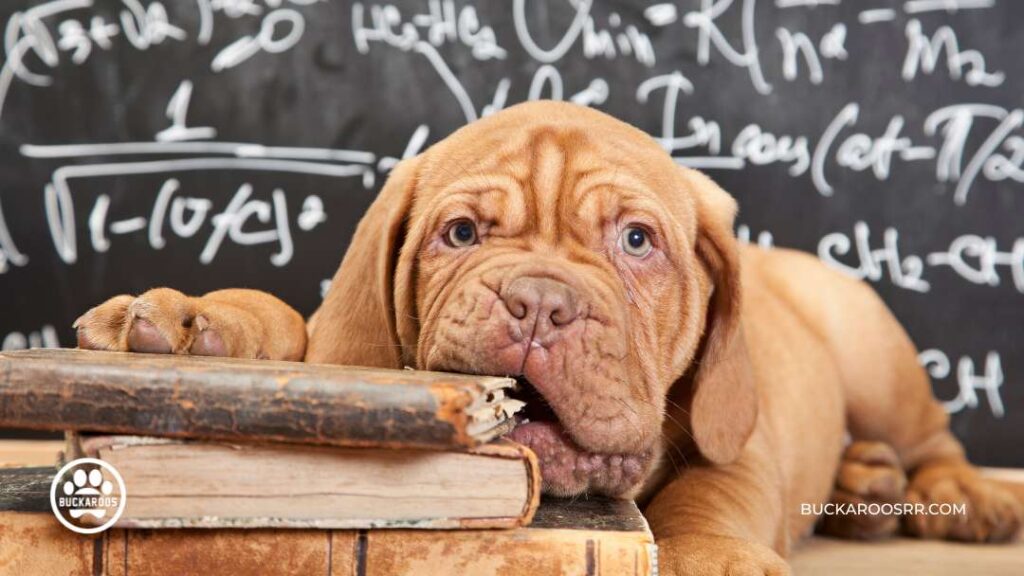
How To Stop Dog Chewing Things
Well, it may be a partial resolution because the more steady you are, the better they understand. Dogs must be treated patiently; primarily, you need to find the root cause that urges them to start chewing. Next, move on to straighten out whatever is troubling them.
Let’s go over a few solutions that can be pursued to stop your dog from treating everything as a chew toy.
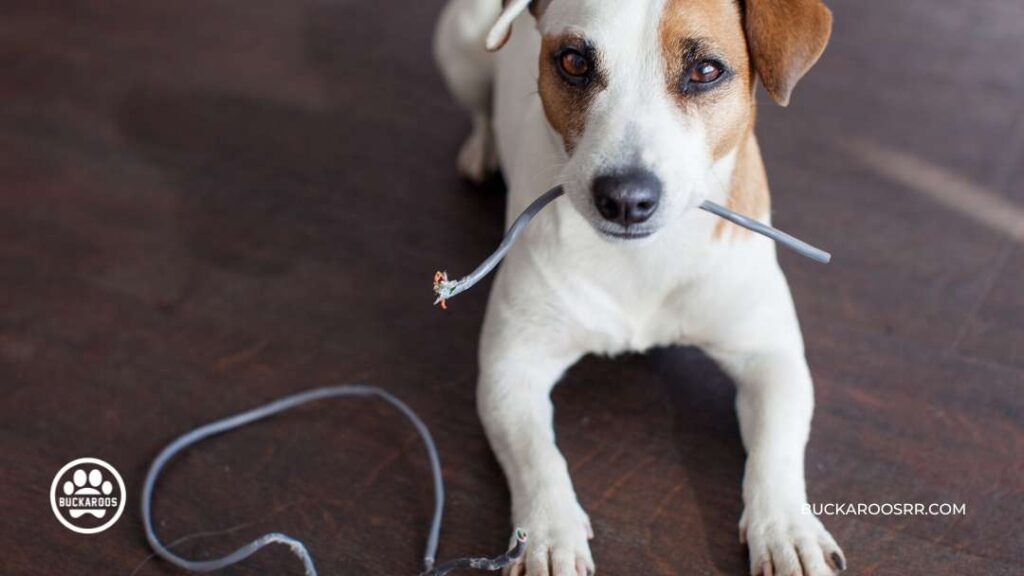
How To Stop A Teething Puppy From Chewing Everything
Some recommend giving puppies pieces of ice like ice cubes or popsicles. They can also be given frozen washcloths or other water-filled and frozen chews. They help to numb the teeth, which reduces pain and irritation.
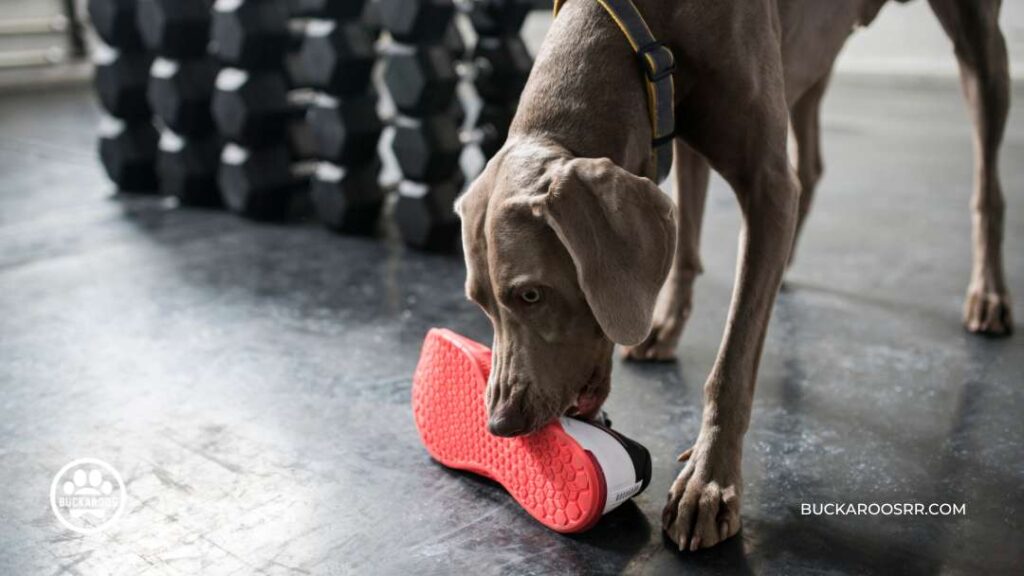
How To Overcome Separation Anxiety In Your Dog
If your dog experiences separation anxiety, it’s best to consult a specialist like a canine ethologist. They will be able to study the issues with your dog and give you personalized treatment options and guidelines.
Treatment for separation anxiety usually combines behavior modification therapy with medication and pheromones. Before that, you can try to leave behind your scent in the form of your items or rub your dog’s blanket or toy on you. Their expert sense of smell will help them smell your scent and keep them calm.
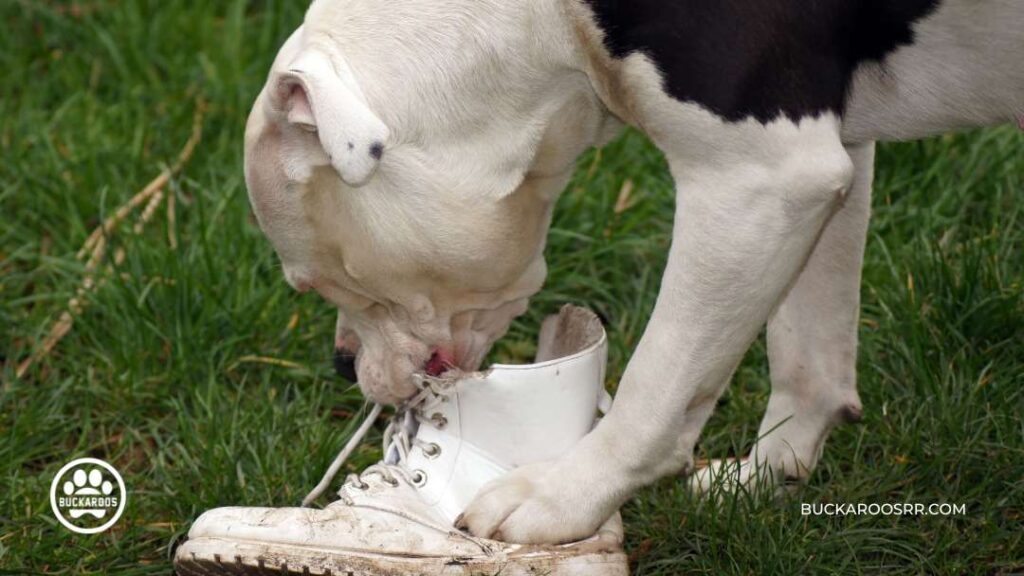
Anxious Dogs lead your dog chewing up stuff
You can divert their energy towards more physical training and prolonged walks to counter anxious and active dogs. This is the best way to exhaust them and give them good exercise. Moreover, once they are tired and worn out, they won’t be interested in chewing anymore.
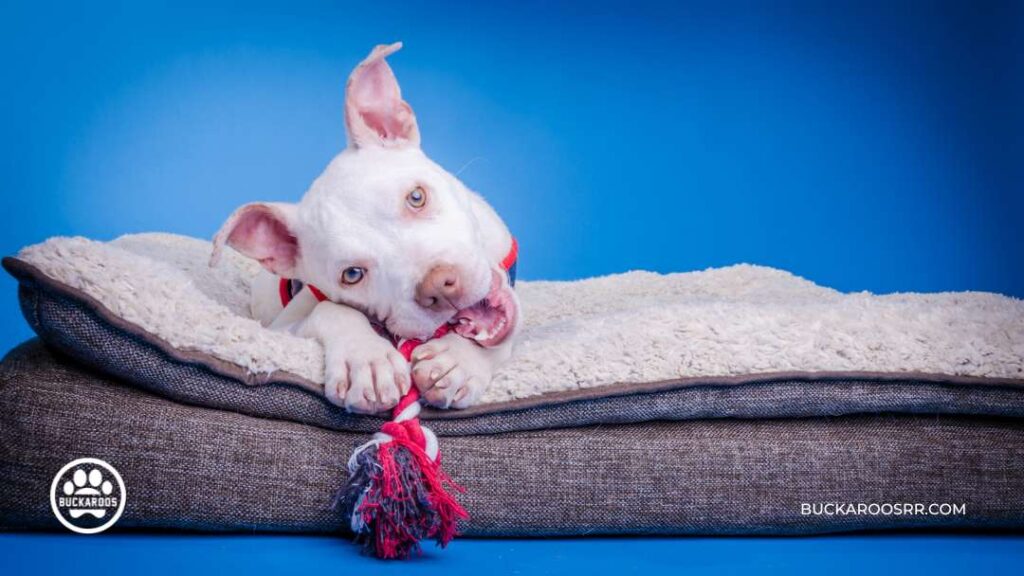
Keep changing their toys.
Your dog might be bored of the same toys and will be out exploring various items to chew. You will need to analyze which toy they like chewing on and get them multiple types of the same. Moreover, you can keep switching between different chew toys, so they are not fed up with the same ones.
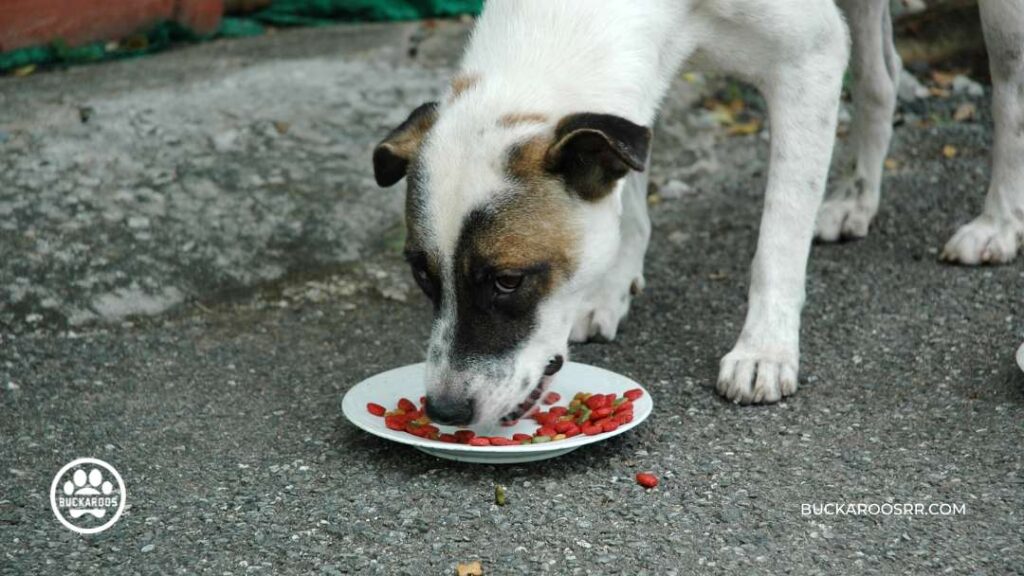
Dealing With Hungry Dogs
Your dog might be following a special diet due to a health issue that might not be fulfilling. Suppose everything else seems fine, and you feel the diet is the problem. In that case, you can consult the veterinarian for a change in the diet that will satisfy the hunger.
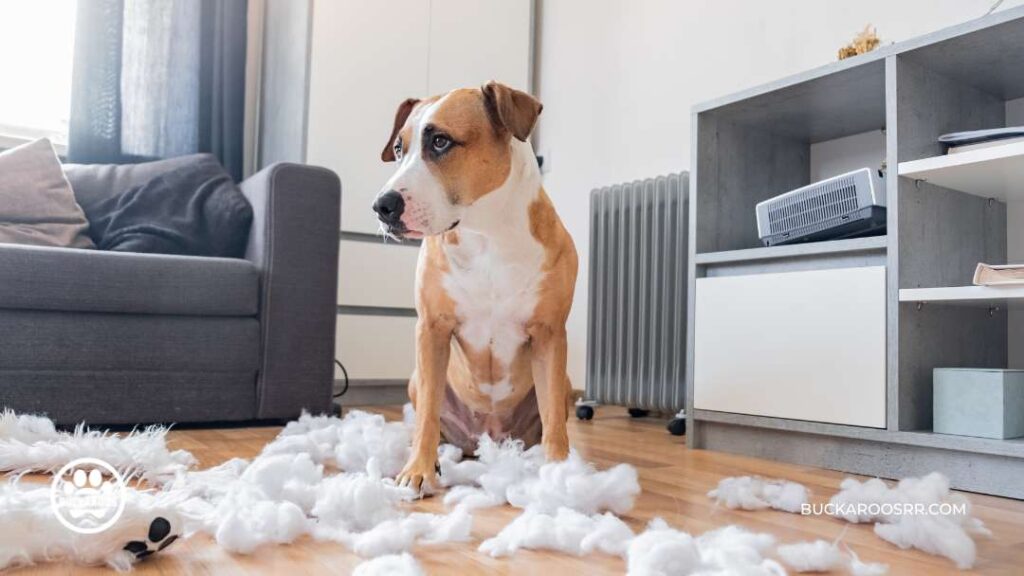
Dog-Proofing The House
It would be best if you put away anything and everything your dog could get ahold of and put into his mouth. Dogs are more resourceful than we think, and a determined dog may still reach even items that appear out of their reach, so it’s best to be safe than sorry.
All food items, especially those with strong smells, should be kept away from curious canine companions. Things like plastic bags, wrappers, and even trash seem appealing to a dog’s powerful nose, so it’s best to err on caution and put those things away.
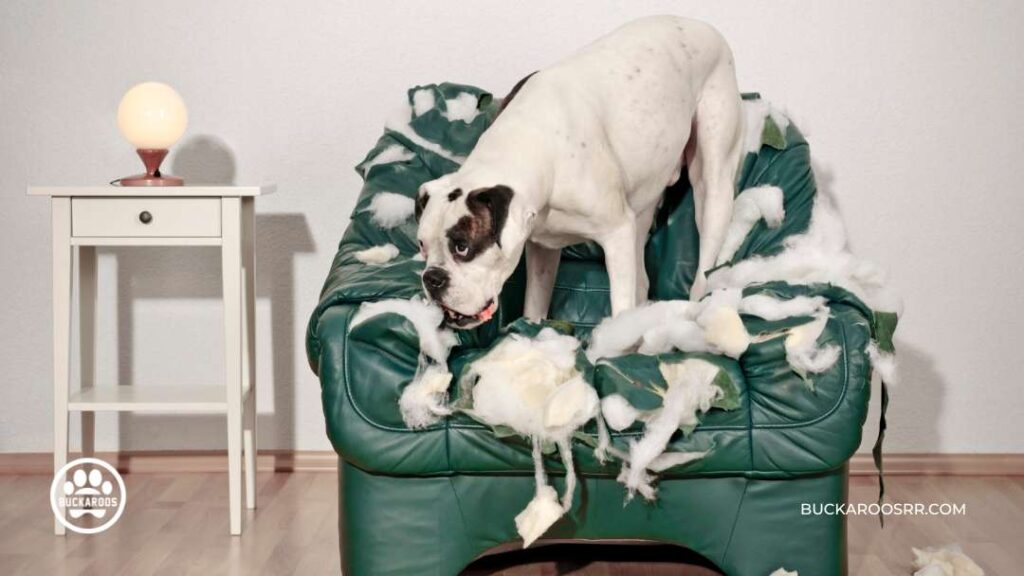
Stop Dog Chewing Spray.
Various chewing deterrents come in the form of a spray. You can spray it on items that are likely to become potential chew toys for your dog. Until you are satisfied that your dog is thoroughly trained, you may use this alternative to keep your dog chewing at bay.
To Sum Up
Puppy or adult dog chewing is perfectly normal behavior for dogs. It is their way of relieving stress or gaining attention. But don’t focus because they can be trained to practice otherwise. All they need is your supervision, some patting, encouragement when they let go of an object that was not supposed to be chewed, and a bunch of toys to wear out the yearning. And provided that dogs are obedient animals, there is nothing that some training cannot resolve. It’s just your patience that needs to be more than your capacity to learn. Reach out to Buckaroos today for training and more.





